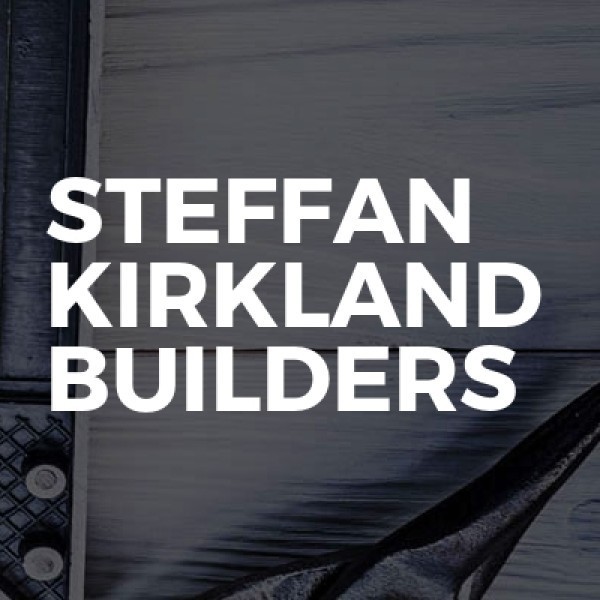Understanding Garage Conversions in Leicestershire
Garage conversions in Leicestershire have become increasingly popular as homeowners seek to maximise their living space without the hassle of moving. By transforming an underutilised garage into a functional room, residents can enhance their property's value and utility. This article delves into the various aspects of garage conversions, offering insights and guidance for those considering this home improvement project.
The Benefits of Garage Conversions
Garage conversions offer numerous advantages. Firstly, they provide additional living space, which can be used for various purposes such as a home office, gym, or guest room. Secondly, converting a garage is often more cost-effective than building an extension. Moreover, it can significantly increase the property's value, making it an attractive investment for homeowners.
Increased Property Value
One of the most compelling reasons to convert a garage is the potential increase in property value. A well-executed conversion can add up to 20% to the home's market value. This is particularly beneficial in Leicestershire, where property prices are steadily rising.
Enhanced Living Space
Converting a garage can provide much-needed space for growing families or those who require a dedicated area for work or hobbies. Whether it's a playroom for children or a quiet study, the possibilities are endless.
Cost-Effective Solution
Compared to other home improvement projects, garage conversions are relatively affordable. They utilise existing structures, reducing the need for extensive construction work. This makes them an attractive option for budget-conscious homeowners.
Planning and Regulations
Before embarking on a garage conversion, it's essential to understand the planning and regulatory requirements in Leicestershire. While some conversions may not require planning permission, others might, depending on the scope of the project.
Planning Permission
In many cases, garage conversions fall under permitted development rights, meaning planning permission is not required. However, if the conversion involves significant structural changes or the property is in a conservation area, permission may be necessary. It's always wise to consult with the local planning authority to ensure compliance.
Building Regulations
Regardless of planning permission, all garage conversions must comply with building regulations. These standards ensure the conversion is safe and energy-efficient. Key areas include structural integrity, fire safety, insulation, and ventilation.
Design Considerations for Garage Conversions
Designing a garage conversion requires careful planning to ensure the space is functional and aesthetically pleasing. Considerations include layout, lighting, and insulation.
Layout and Functionality
The layout should reflect the intended use of the space. For instance, a home office might require built-in desks and storage, while a gym would need open space for equipment. It's crucial to plan the layout before starting construction to avoid costly changes later.
Lighting and Ventilation
Garages often lack natural light, so incorporating windows or skylights can brighten the space. Additionally, proper ventilation is essential to prevent dampness and ensure a comfortable environment.
Insulation and Heating
Insulating the walls, floor, and ceiling is vital to maintain a comfortable temperature year-round. Depending on the conversion's purpose, installing a heating system might also be necessary.
Choosing the Right Professionals
Hiring experienced professionals is crucial for a successful garage conversion. From architects to builders, selecting the right team can make all the difference.
Architects and Designers
An architect or designer can help create a detailed plan that maximises the space's potential. They can also ensure the design complies with local regulations and building codes.
Builders and Contractors
Choosing a reputable builder is essential for quality workmanship. Look for contractors with experience in garage conversions and check references or reviews from previous clients.
Project Management
Effective project management ensures the conversion stays on schedule and within budget. Some homeowners choose to manage the project themselves, while others hire a professional project manager.
Cost Estimation and Budgeting
Understanding the costs involved in a garage conversion is crucial for budgeting. Costs can vary widely depending on the project's scope and the materials used.
Factors Affecting Costs
Several factors influence the cost of a garage conversion, including the size of the garage, the complexity of the design, and the quality of materials. Additional costs may arise if structural changes are needed or if the property is in a conservation area.
Budgeting Tips
To stay within budget, it's important to plan carefully and obtain multiple quotes from contractors. Setting aside a contingency fund for unexpected expenses is also advisable.
Common Challenges and Solutions
While garage conversions offer many benefits, they can also present challenges. Being aware of these potential issues can help homeowners prepare and find solutions.
Structural Challenges
Some garages may have structural issues that need addressing before conversion. This could include reinforcing walls or floors to support the new space.
Planning and Regulatory Hurdles
Navigating planning permissions and building regulations can be daunting. Consulting with professionals and the local planning authority can help streamline the process.
Design and Space Limitations
Garages often have limited space, which can restrict design options. Creative solutions, such as multi-functional furniture, can help maximise the available area.
Case Studies: Successful Garage Conversions in Leicestershire
Examining successful garage conversions can provide inspiration and insight for those considering a similar project. Here are a few examples from Leicestershire.
Home Office Transformation
One homeowner converted their single-car garage into a modern home office. By incorporating large windows and built-in storage, they created a bright and functional workspace.
Guest Suite Addition
Another project involved transforming a double garage into a guest suite with an en-suite bathroom. The conversion included high-quality finishes and clever use of space to create a comfortable retreat for visitors.
Family Playroom
A family in Leicestershire converted their garage into a playroom for their children. The space features durable flooring, ample storage for toys, and a colourful design that encourages creativity and play.
Environmental Considerations
Garage conversions can also contribute to environmental sustainability. By repurposing existing structures, homeowners can reduce waste and minimise their carbon footprint.
Energy Efficiency
Incorporating energy-efficient features, such as LED lighting and high-quality insulation, can reduce energy consumption and lower utility bills.
Sustainable Materials
Using sustainable materials, such as reclaimed wood or eco-friendly paints, can further enhance the conversion's environmental credentials.
Future Trends in Garage Conversions
As the demand for garage conversions continues to grow, new trends are emerging. These trends reflect changing lifestyles and technological advancements.
Smart Home Integration
Integrating smart home technology into garage conversions is becoming increasingly popular. This includes features like automated lighting, climate control, and security systems.
Multi-Functional Spaces
With space at a premium, many homeowners are opting for multi-functional conversions. These spaces can serve multiple purposes, such as a home office by day and a guest room by night.
Frequently Asked Questions
- Do I need planning permission for a garage conversion in Leicestershire? In most cases, planning permission is not required, but it's best to check with the local planning authority.
- How much does a garage conversion cost? Costs vary depending on the project's scope, but a basic conversion typically starts around £10,000.
- How long does a garage conversion take? Most conversions take between 4 to 6 weeks, depending on the complexity of the project.
- Can I convert a detached garage? Yes, detached garages can be converted, but they may require additional considerations, such as connecting utilities.
- Will a garage conversion add value to my home? Yes, a well-executed conversion can increase your property's value by up to 20%.
- What are the building regulations for garage conversions? Building regulations cover areas such as structural integrity, fire safety, insulation, and ventilation.
Garage conversions in Leicestershire offer a practical and cost-effective way to enhance your home's functionality and value. By understanding the benefits, planning requirements, and design considerations, homeowners can embark on a successful conversion project that meets their needs and lifestyle.



















